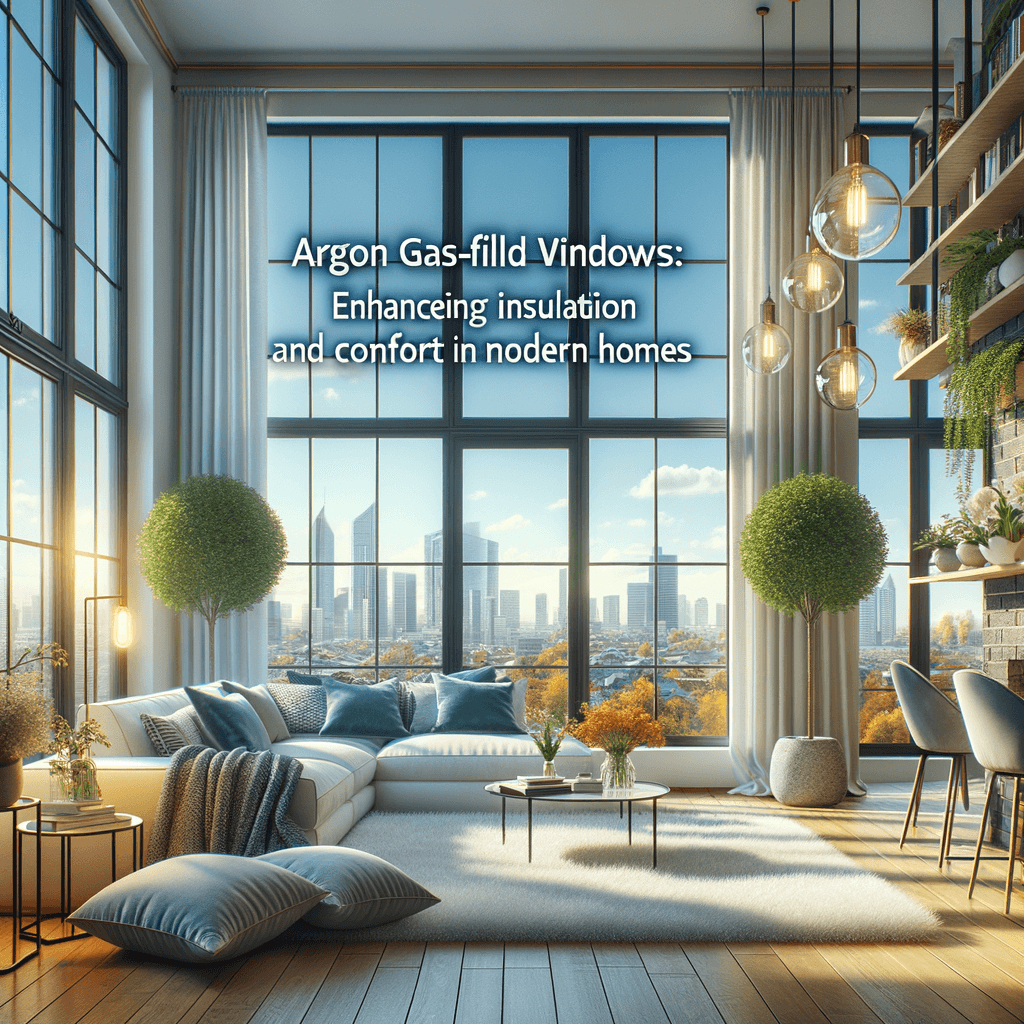
Argon Gas-Filled Windows: Enhancing Insulation and Comfort in Modern Homes
By Total Care Windows Fri Oct 24 20257 minutes

Understanding Argon Gas-Filled Windows: What Sets Them Apart?
Argon gas-filled windows are a hallmark of advanced insulated glass units (IGUs), offering a significant leap in energy performance over traditional air-filled panes. By inserting inert argon gas between the glass layers, these windows minimize thermal transfer and improve overall insulation. This subtle yet impactful innovation addresses the growing demand for homes that balance comfort, efficiency, and sustainability.How Argon Gas Improves Thermal Performance
Argon, being denser than air, reduces heat conduction between the glass panes. This results in lower U-values and improved R-values, directly translating to less heat loss in winter and reduced heat gain in summer. For homeowners, this means consistent indoor temperatures and lower reliance on HVAC systems.| Gas Type | Thermal Conductivity (W/m·K) |
| Air | 0.026 |
| Argon | 0.016 |
| Krypton | 0.009 |
Key Benefits of Argon Gas-Filled Windows
- Enhanced energy efficiency, leading to reduced utility bills.
- Superior condensation resistance, preventing moisture buildup on interior glass surfaces.
- Increased sound dampening compared to standard air-filled units.
- Extended lifespan for window seals due to argon's non-corrosive properties.
- Improved indoor comfort by minimizing cold spots near windows.
“Choosing the right insulated glass unit can be the difference between a home that merely shelters and one that truly nurtures comfort year-round.”
Installation Considerations and Compatibility
Proper installation is essential to maximize the benefits of argon gas-filled windows. The integrity of the window seals must be maintained to prevent gas leakage over time. Not all existing window frames can accommodate IGUs, so consulting a specialist ensures optimal results and compatibility with your property’s architectural style.Argon vs. Other Inert Gases: Making the Right Choice
While argon is the most commonly used gas in residential IGUs due to its balance of performance and cost, alternatives like krypton offer even better insulation—albeit at a premium. Selecting the appropriate gas fill depends on your climate zone, budget, and desired energy performance.- Argon: Affordable, effective for standard double- and triple-glazed windows.
- Krypton: Superior performance in narrow cavities, higher cost.
- Xenon: Rarely used, reserved for high-end specialty applications.
Return on Investment: Do Argon Gas-Filled Windows Pay Off?
Homeowners often question whether the upfront investment in argon gas-filled windows is justified. The answer lies in the long-term savings on heating and cooling, improved comfort, and potential property value appreciation. Over time, the reduction in energy bills can offset the initial cost, making these windows a wise investment for energy-conscious property owners.| Window Type | Average Energy Savings (%) |
| Single Pane (Air) | 0 |
| Double Pane (Air) | Up to 20 |
| Double Pane (Argon) | Up to 30 |
| Triple Pane (Argon) | Up to 40 |